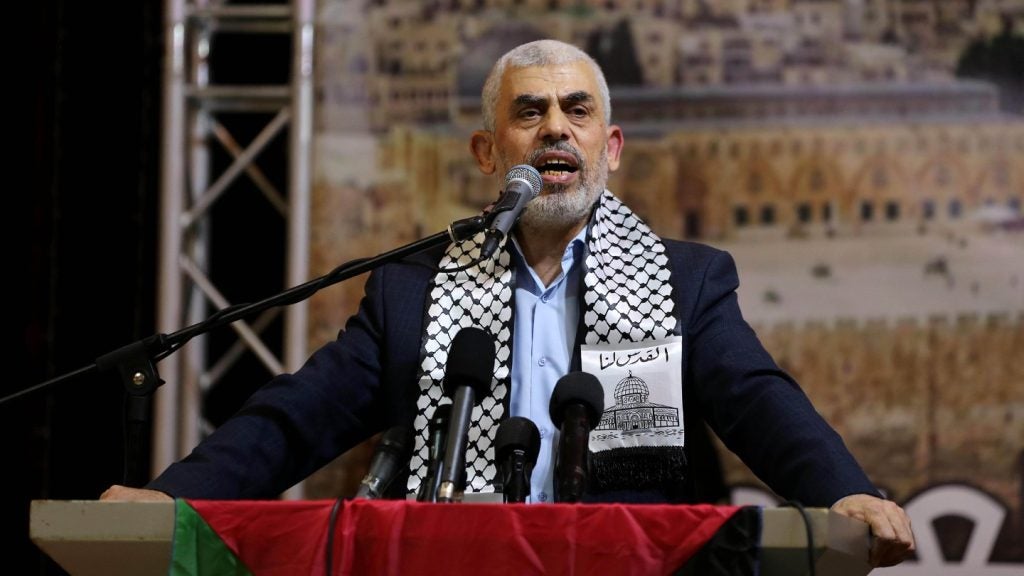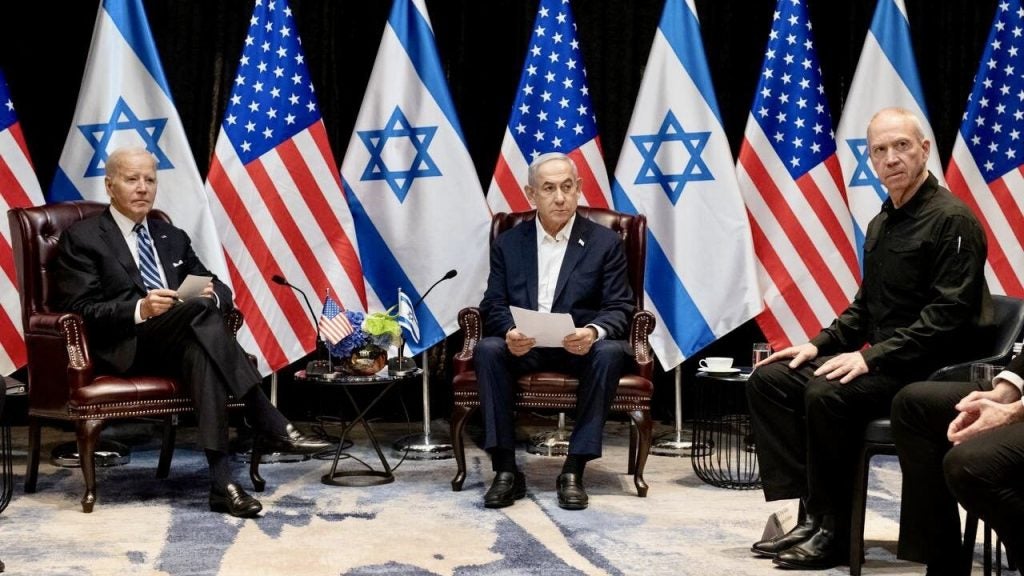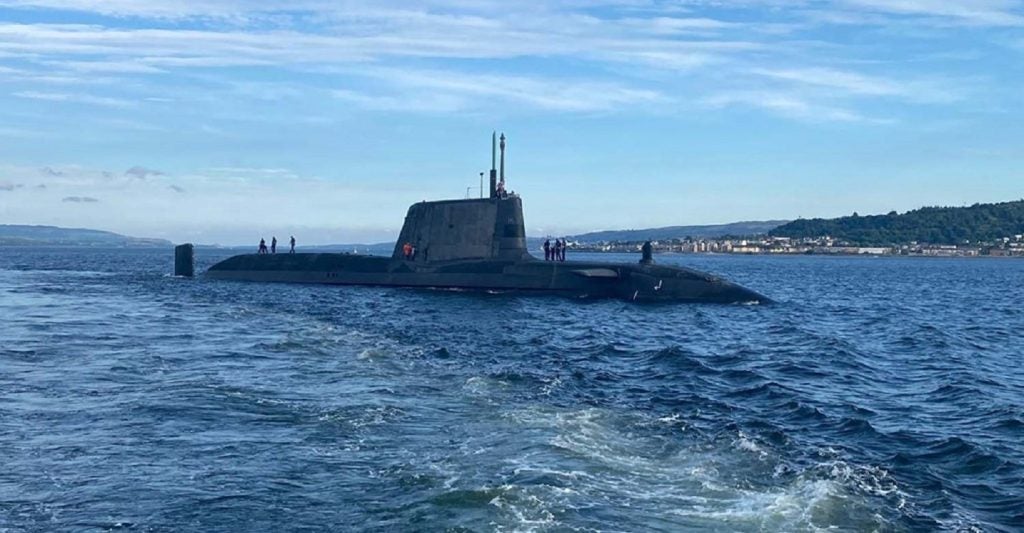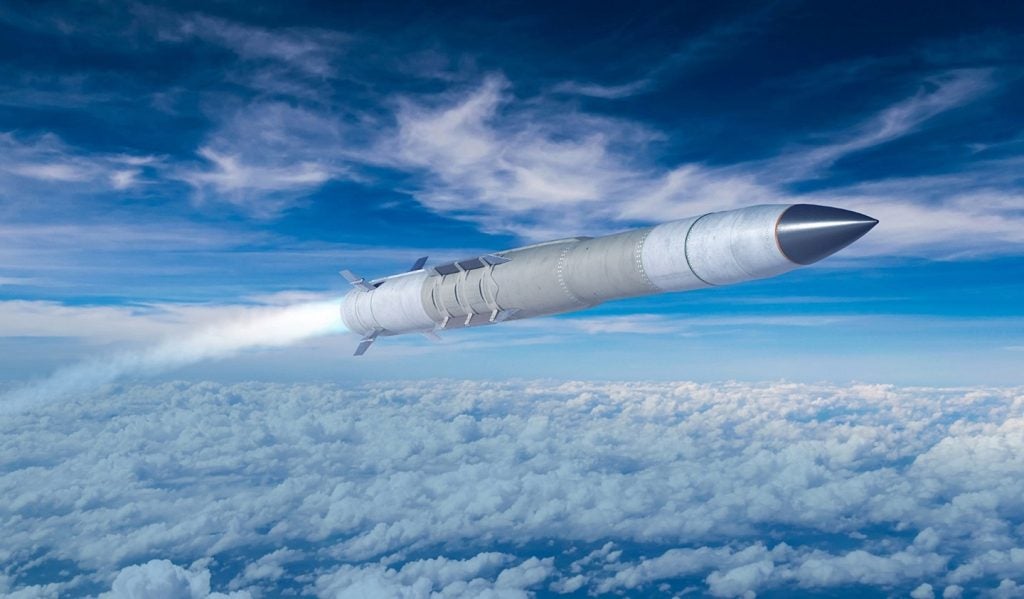The International Criminal Court’s (ICC) decision to seek arrest warrants for Israeli Prime Minister Benjamin Netanyahu, Defence Minister Yoav Gallant and Hamas’ three most senior leaders has prompted a fiery international split.
The ICC’s prosecutor Karim Khan announced the warrants yesterday (20 May), saying his seven-month-long investigation had “reasonable grounds to believe” the five men “bear criminal responsibility” for war crimes in Israel and Palestine.
In an op-ed for the Financial Times, six legal experts consulted by Khan on the ruling wrote that Netanyahu and Gallant stand accused of the intentional starvation of civilians as a method of warfare and the murder and persecution of Palestinians. Hamas’ Yahya Sinwar, Mohammed Deif and Ismail Haniyeh stand accused of killing hundreds of civilians, taking at least 245 hostages and acts of sexual violence.
But, with the US, UK and EU strongly split over the ICC’s decision – which still awaits three judges’ approval – what will the outcome be?
Who supports who?
Khan’s ruling is historic in that no Western-style democracy has ever had an ICC arrest warrant issued for its leaders before. The case looks poised to become an organisation-defining litmus test of the ICC’s power and reach.
In many ways, the polarity of the case has been a lose-lose situation for Khan and his team of humanitarian law experts, who have faced criticism over the length of the ICC’s investigation.
Pro-Palestine protestors complained that Khan took too long to reach a verdict as the death toll surpasses 35,000 Palestinians, the majority women and children, and 1,200 Israelis. Hamas said it “strongly denounces the attempts of the Prosecutor of the ICC to equate the victim with the executioner”.
France’s Foreign Ministry said it supports the ICC’s “independence and fight against impunity”, while Belgium’s Foreign Minister Hadja Lahbib said crimes in Gaza “must be prosecuted regardless of the perpetrators” on X.
South Africa, which opened an ongoing genocide case against Israel in the International Court of Justice (ICJ) last December, has also expressed support for the ICC’s ruling.
President Cyril Ramaphosa came under heavy fire last July when he asked the ICC for exemption to not arrest President Putin, who the ICC also has an arrest warrant for, ahead of his visit to South Africa for a Brics conference.
Pro-Israel supporters, meanwhile, claimed the ICC’s decision jeopardises the chance of a sustainable ceasefire and the safe extraction of Hamas’ hostages. Speaking at the Jewish Heritage Month celebration, President Biden said: “We reject the ICC’s application for arrest warrants against Israeli leaders … what’s happening is not genocide”.
Secretary of State Antony Blinken added that the ICC’s investigation lacked legitimacy “amid the Prosecutor’s rush to seek these arrest warrants rather than allowing the Israeli legal system a full and timely opportunity to proceed”.
Israel claims it has opened investigations into allegations of war crimes in Gaza, even though similar cases in the past have invariably resulted in impunity for Israeli Defence Force (IDF) and political leaders. Amnesty International’s Secretary General Agnès Callamard described the ICC’s move as “a long-awaited opportunity to end the decades-long cycle of impunity in Israel and the Occupied Palestinian Territories”.
Khan and his team, which is predominantly made up of British nationals, have also faced sharp criticism from the Conservative UK government. Following the US criticism, Prime Minister Rishi Sunak today (21 May) said there is no “moral equivalence” between Israel and Hamas and the ICC’s move makes “absolutely no difference” to peace in the Middle East.
When, if ever, will arrests be made?
First and foremost, Khan’s five arrest warrants will have to receive approval from three judges: Maria del Socorro Flores Liera of Mexico, Iulia Motoc of Romania and Reine Alapini-Gansou of Benin.
This is expected to take between one month and three months, although there is no deadline. Previous cases have seen the specific charges adjusted by judges, but it is rare for the arrest warrant to be completely disregarded.

If warrants are issued, the five individuals could be arrested if they travel to one of the 124 nations that are signatories to the Rome Statute that established the ICC.
The ICC’s conviction rate remains low. In 2019, former Ivorian President Laurent Gbagbo was acquitted of crimes against humanity charges. He was the first former head of state to stand trial in the ICC.
Add the inseparable US-Israel alliance to the mix and the arrests of Netanyahu and Gallant seem less likely. Neither Washington nor Tel Aviv are members of the ICC, and both have condemned Khan’s ruling in the strongest terms.
On a geopolitical level, the arrests of Hamas leaders are likelier. But Sinwar and Deif would be reckless to emerge from Gaza’s underground tunnels as Israel’s offensives into Rafah and Jabalia continue, while Haniyeh remains based in Qatar (not an ICC member).
As world leaders continue to weigh in on Khan’s move, attention turns to the three judges’ verdict. Ultimately, the approval and enactment of these arrest warrants will determine the power of the ICC and transnational institutions of its type for years to come.











